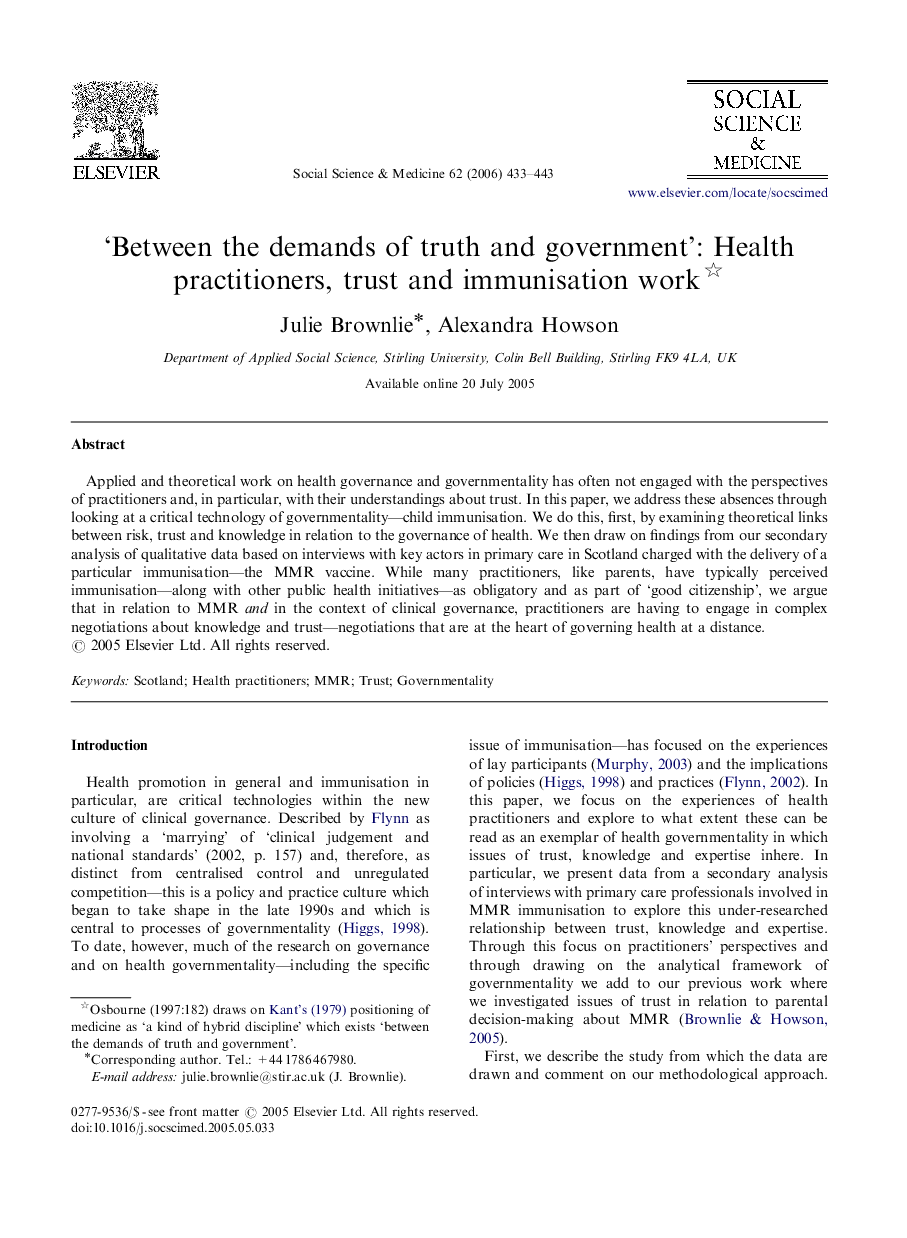| Article ID | Journal | Published Year | Pages | File Type |
|---|---|---|---|---|
| 955144 | Social Science & Medicine | 2006 | 11 Pages |
Applied and theoretical work on health governance and governmentality has often not engaged with the perspectives of practitioners and, in particular, with their understandings about trust. In this paper, we address these absences through looking at a critical technology of governmentality—child immunisation. We do this, first, by examining theoretical links between risk, trust and knowledge in relation to the governance of health. We then draw on findings from our secondary analysis of qualitative data based on interviews with key actors in primary care in Scotland charged with the delivery of a particular immunisation—the MMR vaccine. While many practitioners, like parents, have typically perceived immunisation—along with other public health initiatives—as obligatory and as part of ‘good citizenship’, we argue that in relation to MMR and in the context of clinical governance, practitioners are having to engage in complex negotiations about knowledge and trust—negotiations that are at the heart of governing health at a distance.
